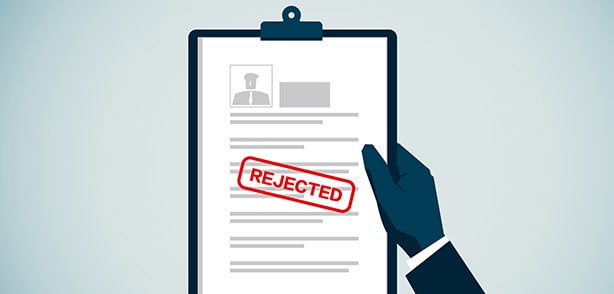Business Line of Credit: What It Is & How It Works
Fora Financial offers access to business lines of credit. Learn everything about the business line of credit, including how they work, their benefits, and key things to consider. Decide if this flexible financing solution is right for your needs and to help you find the best line of credit for business.

What Is a Business Line of Credit?
It’s a flexible financing option that gives businesses access to a set amount of funds to draw from as needed, with interest charged only on the amount used. This revolving credit allows businesses to manage cash flow, cover unexpected expenses, and fund growth opportunities effectively.

How Does a Business Line of Credit Work?
A business line of credit provides a set amount of funds that a business can access at any time, borrowing and repaying as needed within the credit limit. Interest is only charged on the amount used, making it a flexible solution for managing cash flow and covering unexpected expenses.
How to Use a Business Line of Credit
Lines of credit can be used to manage cash flow, cover operational costs, or bridge financial gaps during slow periods. It’s also a helpful tool for funding short-term projects or seizing unexpected business opportunities without the commitment of a long-term loan.
-
Cover Seasonal Expenses
Businesses with seasonal fluctuations in revenue can use a line of credit to manage cash flow during slower periods, ensuring they can meet payroll and other operational expenses.
-
Purchase Inventory in Bulk
Businesses can use a line of credit to buy inventory in bulk at a discount, allowing them to save on costs and improve profit margins without affecting cash reserves.
-
Fund Marketing Campaigns
A line of credit can provide the funds needed for short-term marketing campaigns, allowing businesses to promote new products or services and drive sales growth without a large upfront investment.
What’s the Difference Between Secured and Unsecured Business Lines of Credit?
Secured |
Unsecured |
|
|---|---|---|
| Collateral required? | Yes | No |
| How is the interest rate? | Usually lower | Usually higher |
| Amount | Usually is dependent on the collateral value, sometimes can be in higher amounts | Usually lower because the lender is taking on risk |
| Is it easy to get approved? | Tends to be easier | Tends to be harder |
Revolving vs Non-Revolving Lines of Credit
Revolving Line of Credit
A revolving line of credit for business provides a flexible borrowing option, allowing access to funds up to a set limit that can be reused as it’s repaid. This makes it ideal for businesses managing variable cash flow or covering recurring expenses. In contrast, a non-revolving line of credit offers a one-time amount that, once repaid, cannot be borrowed again, suiting one-time expenses rather than ongoing needs.
Non-Revolving Line of Credit
A non-revolving line of credit for business provides a fixed amount of funds that can only be borrowed once and must be repaid in full. Once the balance is repaid, the credit line is closed and cannot be used again. Unlike a revolving line of credit, a non-revolving line doesn’t renew, making it best for covering specific, one-time expenses rather than ongoing cash flow needs.
Why Apply for a Business Line of Credit?
Flexible Access to Funds
A line of credit provides access to funds when needed, allowing businesses to handle unexpected expenses or opportunities without taking on a long-term loan.
Interest Savings
With a line of credit, businesses only pay interest on the amount they use, making it a cost-effective option for short-term financing needs.
Improved Cash Flow Management
A line of credit helps businesses maintain steady cash flow by covering gaps between payables and receivables, ensuring smooth day-to-day operations even during slow periods.
Pros & Cons of Business Lines of Credit
Pros
-
Revolving Credit
-
Builds Credit History
-
No Collateral Required (in Some Cases)
Cons
-
Variable Interest Rates
-
Annual Fees and Maintenance Costs
-
Stringent Qualification Requirements
-
Frequent Reassessment by Lenders

Is a Business Line of Credit Right For You?
Lines of credit provide businesses flexible funding and quick access to capital, making them an excellent choice for managing cash flow needs. However, it's important for businesses to evaluate all financing options available to ensure they select the one that aligns best with their financial goals and operational needs.
We're a Funding Partner
with a Proven Track Record
Since 2008, we've grown with the companies we support.
Minimum Eligibility Requirements
The requirements involve reviewing credit scores, financial documents, your business’s established history, possible collateral, and more. Here’s a breakdown to give you a better idea of what to expect.

| Time in Business | Minimum 6 Months |
|---|---|
| Business Annual Growth Revenue | $240K+ Annual Revenue |
| Business Checking Account | Yes |
| US Citizen/Based Company | Yes |
| FICO Score | 570+ |
| Other Financing | None |
| Bankruptcies | None open |

Better Your Business With Fora Financial
-
Release New Products
-
Hire Skilled Workers
-
Purchase or Repair Equipment
-
Enhance Your Brand
-
Get New Customers
-
Expand Business Location
Case Studies
Business Line of Credit FAQ
-
Yes, it can impact personal credit, but this largely depends on the structure of the agreement. When a personal guarantee is required, you're essentially tying your own credit to the business line. This means any missed payments or defaults could show up on your personal credit report, potentially lowering your score. However, some business line of credit lenders only report to business credit bureaus, so it's worth clarifying with your lender upfront.
-
Securing a business line of credit isn't necessarily easy or hard—it really depends on the financial health of your business and the lender's criteria. Companies with a strong credit history, steady cash flow, and reliable financial documentation tend to have an easier time qualifying. For newer businesses or those with spotty financials, it might take a bit more effort, but alternative lending options exist to help bridge the gap.
-
Business line of credit rates are influenced by several factors, including the creditworthiness of the business, the amount of collateral (for secured lines), and current market interest rates. Businesses with a solid credit history, stable cash flow, and valuable assets can often secure more favorable rates. Unsecured lines of credit tend to have higher rates since they pose a greater risk to lenders. Additionally, rates can vary based on the lender's terms, so it's wise to shop around and compare options before committing to a line of credit.
-
A business line of credit is designed for business-related expenses, so using it for personal items is generally a no-go. Doing so could violate the terms of your credit agreement, leading to potential financial or legal issues, especially if it's discovered by the lender. Keeping personal and business finances separate not only ensures compliance with the agreement but also makes bookkeeping easier and protects your credit.
-
It can affect your credit score, but it depends on the type of credit score we're talking about. For a business credit score, timely payments on a business line can boost it, while missed payments can pull it down. If there's a personal guarantee attached, it might also affect your personal credit. Always check whether the lender reports to business, personal, or both types of credit bureaus to understand where the impact might land.
-
The interest you pay on a business line of credit is typically tax-deductible, but only if it's used for legitimate business purposes. This means expenses related to operations, equipment, or other business needs usually qualify. The IRS has specific guidelines, so consulting a tax advisor is smart to ensure all your deductions are above board and maximize tax benefits.
-
Lines of credit for business can vary widely based on the lender, the business's creditworthiness, and financial profile. Some lines are relatively small, starting around $10,000, while others can stretch well beyond $1 million for businesses with substantial assets and credit strength. Lenders assess your financials to determine the amount they're willing to extend, so strong documentation can help secure a larger credit line.
-
A secured business line of credit requires collateral—like inventory, equipment, or even real estate—which acts as a fallback for the lender. Because of this added security, businesses can often access higher credit limits and lower interest rates than with unsecured lines. This arrangement benefits businesses with valuable assets and can make financing less costly over time.
-
An unsecured business line of credit doesn't require collateral, meaning there's no need to put up assets to get approved. Instead, lenders rely heavily on the business's creditworthiness and cash flow to gauge risk. While it's often more accessible for companies lacking assets to secure a line, unsecured options typically come with lower limits and higher interest rates to account for the added risk. Read more about secured and unsecured business lines of credit in our article: "How Do I Choose a Business Line of Credit?"
-
For new businesses, obtaining a line of credit can be challenging, as lenders prefer a stable financial history. Building up business credit over time, maintaining a strong personal credit score, and preparing thorough financial documentation can make a difference. Startups may also want to consider secured options or approach community banks and lenders that specifically work with newer businesses and might be more flexible with requirements.
Related Resources to Business Lines of Credit
What Sets Us Apart from the Rest
Get Financing Today
Get started with your application and join Fora Financial's family of forward-thinking businesses.







